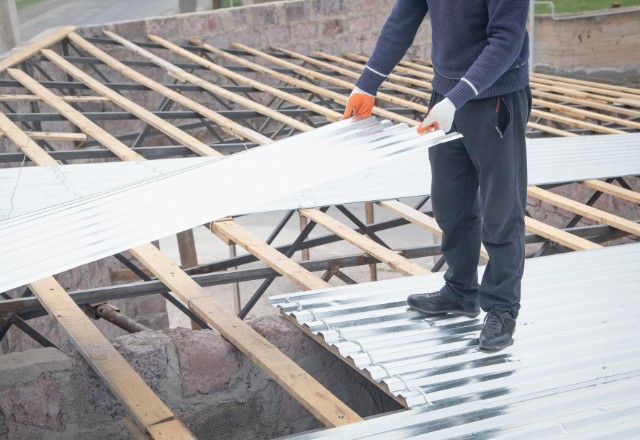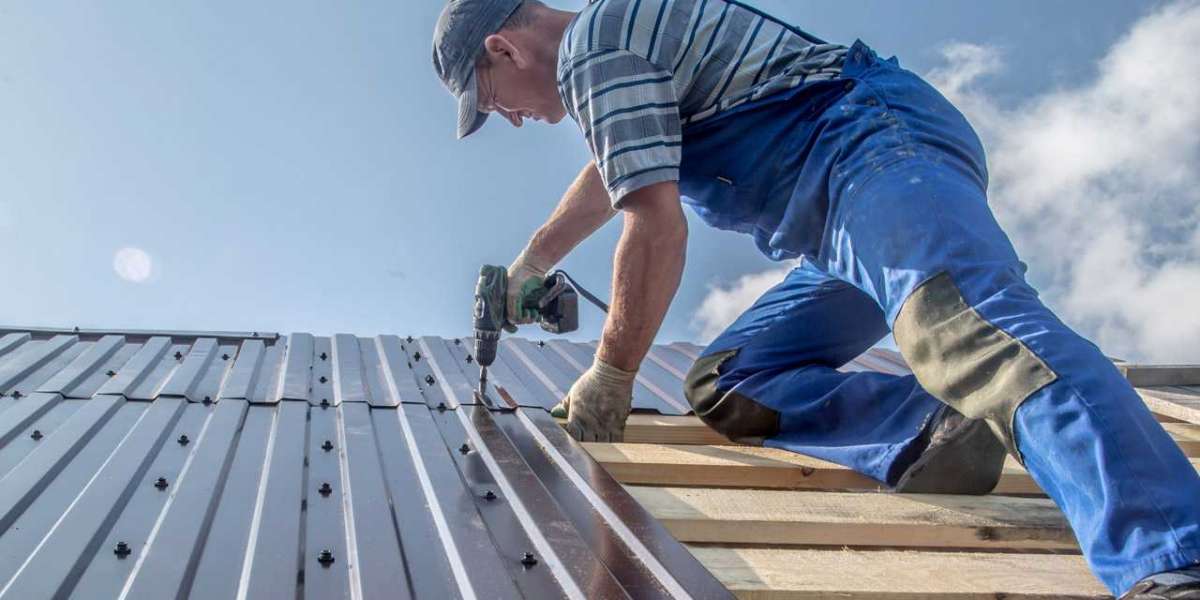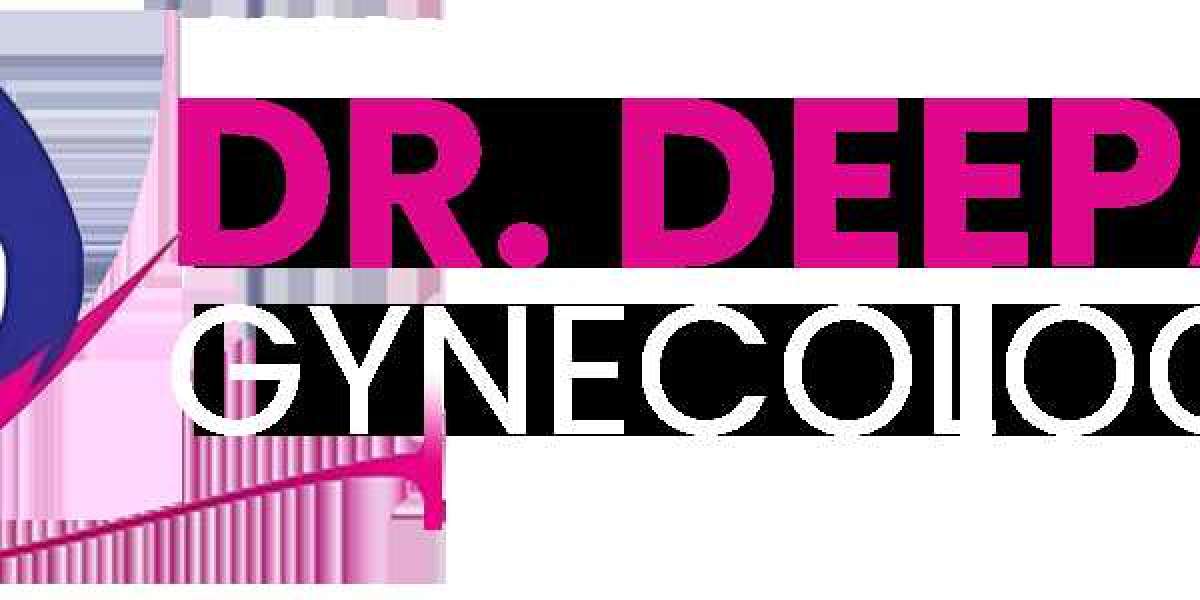Among the many options available, corrugated roof metal continues to gain popularity thanks to its impressive lifespan and versatility. But how does it stack up against other common roofing materials like asphalt shingles, wood shakes, clay tiles, or standing seam metal?
In this article, we’ll explore a comprehensive comparison of corrugated metal roofing versus other materials, helping you make an informed decision that fits your property and budget.
ID Roof Company, a certified roofing contractor proudly serving Middlesex, Plymouth, Bristol, Suffolk, Norfolk, and Essex counties in Massachusetts, offers expert guidance and installation for all roofing types, including high-performance corrugated roof metal
What is Corrugated Roof Metal?
Corrugated metal roofing is made from sheets of galvanized steel or aluminum that are rolled into a wavy pattern. This unique design provides additional strength, allowing the material to support weight and resist weather-related damage. It’s known for being lightweight, cost-effective, and long-lasting—making it a popular choice for both residential and commercial properties.
Corrugated Metal vs Asphalt Shingles
Durability and Lifespan
Asphalt shingles are widely used due to their affordability and ease of installation, but they typically last only 15–30 years depending on the quality. In contrast, corrugated roof metal can last 40–70 years with minimal maintenance.
Metal is also more resistant to weather elements such as wind, hail, and fire. For homeowners in Massachusetts, where storms and temperature fluctuations are common, this enhanced durability can lead to significant long-term savings.

Maintenance and Repairs
Asphalt shingles can crack, curl, or lose granules over time. Maintenance involves periodic inspections and replacing damaged shingles. Corrugated metal, on the other hand, requires little upkeep. Occasional cleaning and ensuring fasteners remain tight is usually enough to keep it in great condition.
Energy Efficiency
Corrugated metal reflects solar heat, keeping homes cooler in summer and reducing energy bills. Asphalt shingles tend to absorb heat, which can increase the load on cooling systems—especially during warm months.
Corrugated Metal vs Wood Shakes
Aesthetic Considerations
Wood shakes offer a rustic, natural look that appeals to traditional architecture. While corrugated roof metal may seem more industrial, it’s now available in a wide variety of finishes, colors, and coatings that can complement both modern and classic designs.
Cost and Installation
Wood shakes are generally more expensive to install and require specialized labor. Corrugated metal is quicker to install, lighter to transport, and more budget-friendly over the long term.
Maintenance and Environmental Impact
Wood roofs are susceptible to rot, mold, insect damage, and fire unless treated. They also need regular sealing and inspection. Corrugated metal is pest- and fire-resistant and often made from recycled materials, offering a more eco-conscious solution.
Corrugated Metal vs Clay and Concrete Tiles
Weight and Structure
Clay and concrete tiles are among the heaviest roofing materials. They may require structural reinforcements before installation. In contrast, corrugated roof metal is lightweight and can be installed on most existing roof decks without additional support, reducing installation time and cost.
Weather Resistance
Clay and concrete perform well in warm, dry climates but are more likely to crack in freeze-thaw cycles, making them less ideal for Massachusetts winters. Corrugated metal stands up to extreme cold and heavy snow loads with ease, making it a better fit for Northeastern homes.
Maintenance and Longevity
Both materials offer long lifespans, but corrugated metal typically requires less maintenance. Tile roofs can be prone to cracking and shifting over time, leading to more frequent repairs.
Corrugated Metal vs Standing Seam Metal
Design and Appearance
While both are metal roofing options, standing seam panels have concealed fasteners and a sleek, modern appearance. Corrugated metal has exposed fasteners and a more traditional, ribbed look. Both can be visually appealing depending on the architectural style.
Cost Comparison
Corrugated metal is generally more affordable than standing seam systems, making it an excellent entry-level option for those wanting the benefits of metal without the higher upfront investment.

Maintenance
The main difference lies in the fastening systems. Exposed fasteners on corrugated panels can wear over time and may need tightening or replacement. Standing seam systems are virtually maintenance-free due to concealed fasteners and watertight seals.
Benefits of Corrugated Roof Metal
Homeowners and business owners choose corrugated roof metal for a reason. Here are some of the top benefits:
Longevity: Lasts decades longer than asphalt or wood.
Affordability: Lower lifetime cost compared to many other materials.
Weather Resistance: Performs exceptionally well in rain, snow, and high winds.
Energy Efficiency: Reflects heat to reduce cooling costs.
Sustainability: Made from recyclable materials and reduces waste.
Lightweight: Easier and less expensive to install.
Whether you’re roofing a residential property, commercial building, barn, or garage, corrugated roof metal offers dependable performance with minimal hassle.
Trust ID Roof Company for Expert Roofing Solutions
At ID Roof Company, we specialize in helping Massachusetts homeowners choose the best roofing material for their unique needs. With decades of experience and certifications across Middlesex, Plymouth, Bristol, Suffolk, Norfolk, and Essex counties, we offer high-quality installations of corrugated roof metal and more.
Our team is here to guide you through the pros and cons of each option, ensuring your new roof is beautiful, durable, and built to last. Whether you're upgrading, building new, or replacing a damaged roof, trust the experts at ID Roof Company to deliver quality you can rely on.
Contact us today to schedule a consultation and explore the full benefits of corrugated roof metal for your home or business.







